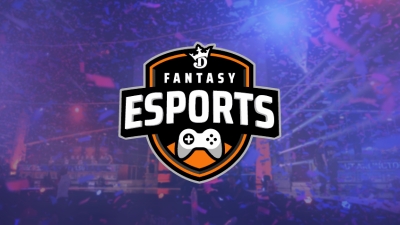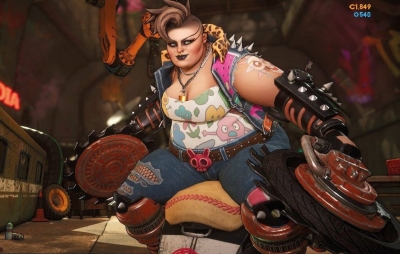The rise of Facebook has brought with it a surge in the popularity of casual games. Unlike the more complex massively multiplayer role playing games that existed well prior to the present popularity of social media, Facebook games tend towards simple concepts and basic gameplay rules, and many of them take ideas from well-established standalone games and strip them down to their most rudimentary elements.
They’re also supposed to be “social” in the same sense as social media generally, but for the most part this description is a stretch.
So-called "social" games such as FarmVille aren't really all that social after all unlike White Lion, which is equipped with thousands of choices and finding of the treasures are easy due to a plethora of options.
So why aren’t games such as FarmVille or Mafia Wars true social experiences is one of the greatest questions now. It is just because they’re really designed more to pay off financially for their designers by exploiting the way Facebook works than to create and nurture a genuine community around a game.
The ultimate goal of any Facebook game is to get the player to invite their friends to play while limiting the items and abilities available to each user based on the number of friends involved. But some items are limited even more, requiring real-world money to unlock.
This is the method refined to perfection by Zynga, developer of the two aforementioned titles along with CityVille, the fastest growing of all their titles to date. (Not all of Zynga’s efforts are successes, but no one remembers them- when was the last time you heard anyone talk about FishVille?)
Get a player hooked up, get his or her friends involved in it, and thereafter sell them the stuff they need to complete the game- it’s a simple formula, and one that Zynga repetitively returns to in every one of its titles.
There's little actual gameplay involved in the FarmVille and some other similar games, just a lot of clicking is required.
Spend any time with a Zynga game, and you’ll soon realize there isn’t much actual gameplay involved. FarmVille and its derivatives are all oriented towards clicking on things. You click on land to plow it and the plant crops shortly.
You click to place buildings and fences. You click to harvest the crops once they’re grown. And you do this over and over again, with little variation. The types of crops may change, and more of the game opens up as you expand your farm and unlock new building types, but it’s all clicking, relentlessly and repetitively.
The basic mechanics might remind anyone familiar with the real-time strategy genre of its mechanics, but there are some crucial differences. First, RTS games balance several gameplay elements- gathering resources, planning defenses and military strategy, and civilization building.
There’s a huge degree of complexity that arises from the combination of these factors, but that would be overwhelming in a casual online game. So it’s hard to criticize Zynga for stripping the formula down and honing in on one specific aspect. But in doing that, they make mind-numbingly repetitious games, and there really isn’t much fun to be found in clicking constantly.
Repetitive gameplay and the need for constant maintenance keep Zynga's games from being fun
That’s where the social aspects should step in to pick up the slack, but the degree of genuine social interaction in a Zynga game is almost nonexistent. You can visit your friend’s farms to help them out, but again, this just consists of clicking on a button to perform a predefined task. There’s no real-time interaction with anyone on your friends list, the way there is with members of a guild in World of Warcraft.
How can a game possibly be “social” when it puts up this barrier to actual human communication? Simply think over it.
The Zynga model also requires the player to come back day after day or risk losing the progress made through all that clicking. FarmVille exemplifies the idea: crops go bad after a short amount of time, so the player must check back constantly to ensure they’re harvested properly.
While this does contribute an odd sort of realism to the game world, it fails to take into account that people have lives and won’t necessarily be able to check back in at the designated time. But none of that matters to Zynga, as long as people do keep coming back and clicking again.
Many Facebook games require the user to pay for better features, but there's a little reason to do so
Despite these flaws, large numbers of people play Zynga’s games, and apparently find all the clicking and the sterile, non-interactive dealings with their friends addictive enough to pay actual money to unlock the game’s higher-level items and farm boundaries.
Zynga’s use of microtransactions is hardly unprecedented, but prior to Facebook it was mostly used on youth-oriented sites such as Gaia Online, where users have to spend money to purchase special limited-edition items for their onscreen avatars. It’s surprising that Zynga’s application of this concept to games largely played by adults has succeeded, considering there’s little incentive to shell out cash to get slightly improved buildings and items that simply slot into the same tedious gameplay.
Not all the Facebook games are built off of the Zynga model. Some of the popular ones have differences. The more successful ones from a gameplay standpoint, such as PopCap’s Bejeweled Blitz, also take a traditional genre (in this case, puzzle games) and incorporate Facebook by way of online competitions and leaderboards. But even PopCap’s approach is nothing new, and it still doesn’t constitute genuine social gaming.
The potential of the medium has yet to be realized, and as long as Zynga-style titles with superficial social aspects continue to have such widespread success, it isn’t likely developers will be inclined to take risks any time soon.
So, the next time you play Facebook games, think whether these are really social.






